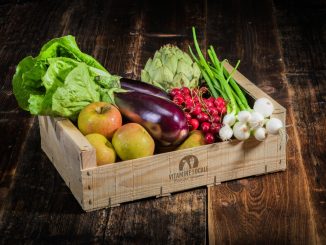
Vitamins are a crucial part of our lives, and most of them can be obtained from a balanced daily diet. However, as our body ages, it will automatically need several extra doses of vitamins. Find out you should consume and how each vitamin helps you in the aging process!
Vitamin B12
An integral part of our nerve cells. We naturally get Vitamin B12 only from animal origin foods such as meat, fish, eggs and dairy products. Most people consume enough B12, but this could change throughout the aging process. 30% of people over the age of 50 have a condition called atrophic gastritis, which makes it more difficult for the body to absorb B12 from food.
Vitamin B6
Your body uses it to fight germs and produce energy. Researchers say you need more B6 as you get older. Some studies have found links between high levels of B6 in the blood and better memory, but the vitamin does not seem to improve mental abilities in people suffering from dementia.
Vitamin D
The body needs calcium, so be sure to supplement vitamin D to help prevent osteoporosis. Vitamin D also helps your muscles, nerves and immune system function properly. Most people get vitamin D from sunlight, but the body is less able to turn sunlight into vitamin D as we grow older, so fatty foods like salmon are a good source.
Calcium
With the aging process, we start to lose more of this mineral than we absorb. This can damage the bones (osteoporosis), especially for postmenopausal women. Calcium helps the muscles, nerves, cells and blood vessels to function properly. Women aged over 50 and men over the age of 70 should receive about 20% more than other adults. Milk, yoghurt and cheese are very good sources.
Magnesium
It helps your body produce proteins and maintain stable blood sugar levels. You can get magnesium from nuts, seeds and greens / salad. Older people tend to eat less of these foods and therefore have a magnesium deficiency.
Probiotics
These “friendly” bacteria are good for the intestines. We get them from fermented foods such as yoghurt or cabbage, or from dietary supplements. They can help people with digestive problems such as diarrhea or irritable bowel syndrome and can even protect against allergies.
Selenium
It protects your cells from infections and maintains the correct functioning of the thyroid. Selenium can keep your muscles strong and can help prevent age-related illnesses such as dementia, some types of cancer and even thyroid disease. Generally speaking, 1 or 2 Brazil nuts per day should be enough. Do not exagerate, though, as too much selenium can cause hair loss.
Fiber
You probably already know that fibers are good for your digestion. But did you know they are even more important as you get old? Fiber helps protect against strokes, helps keep you healthy and lowers cholesterol and blood sugar levels. Women over 50 should receive at least 21 grams of fiber per day, while men need 30 grams, but unfortunately most people do not get consume enough. This amount could be obtained from about 6-8 servings of whole grains or 8-10 portions of vegetables.
Potassium
Potassium plays a role in almost everything inside the body, including the heart, kidneys, muscles and nerves. It can also help protect against strokes, high blood pressure and osteoporosis. Dried apricots, bananas, spinach, milk and yogurt are good sources of potassium.



Leave a Reply